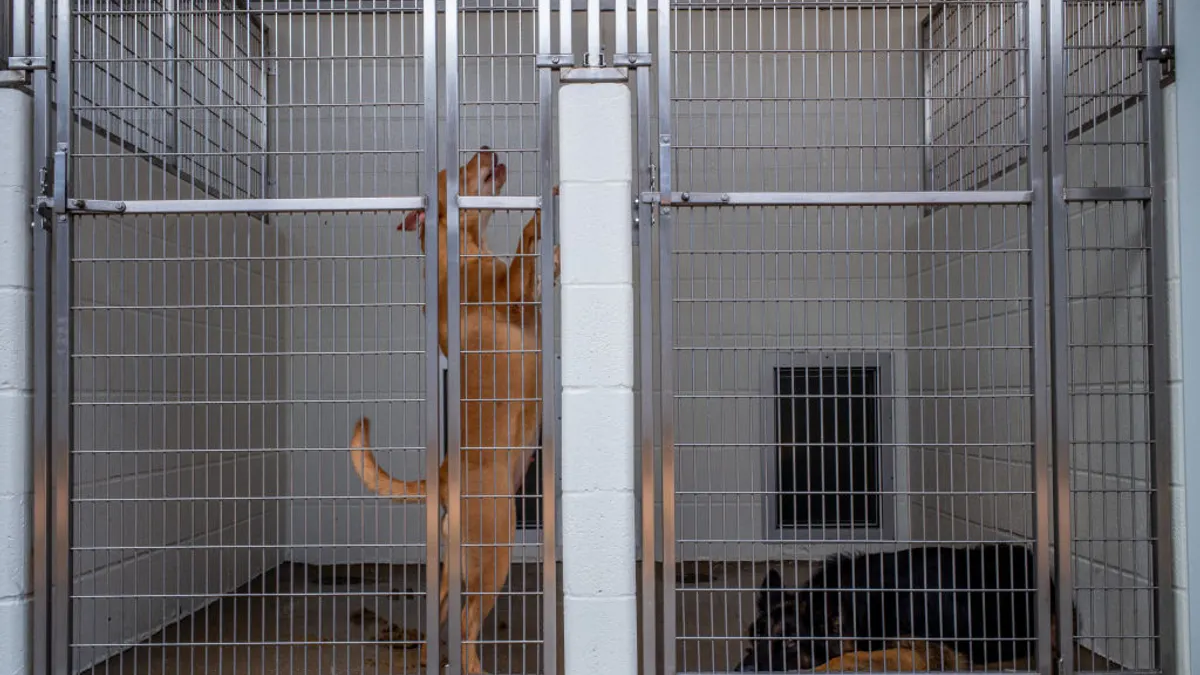The pandemic may have caused many court proceedings to go virtual, but U.S. Equal Employment Opportunity Commission Acting Legal Counsel Carol Miaskoff still had plenty to unpack at the agency's June 2021 EXCEL Training Conference. Three key trends emerged from her discussion of significant EEOC court cases decided in the last year.
1. The questions Bostock left unanswered
Last June, the U.S. Supreme Court issued a landmark ruling in handing down its Bostock decision, which granted workplace protections to LGBTQ people. It provided needed clarity about employment protections, but it left a few questions unanswered.
Courts have been answering some of these questions in the wake of Bostock, Miaskoff said. An Illinois district court, for instance, applied the Bostock analysis when a worker alleged her union discriminated against her based on sex when it refused to enroll her wife in health insurance coverage that it previously granted to opposite-sex couples (Jimenez v. Laborer's Welfare Fund, 2020 WL 5979653 (N.D. Ill. Oct. 8, 2020)).
The court ruled for the employee, noting that "there can no longer be any dispute that the conduct alleged constitutes sex discrimination . . . . Had Jimenez been a man seeking spousal coverage for a wife, coverage would not have been denied. She did not receive this coverage because she was a woman seeking coverage for her wife."
Another trial court rejected an employer's argument that gender misidentification isn't covered by Title VII (Doe v. Triangle Doughnuts, 2020 WL 4013409 (E.D. Pa. July 16, 2020)). A transgender female worker's coworkers and supervisors had intentionally referred to her using male pronouns, her previous male name and slang like "dude," Miaskoff said. "It naturally follows [from Bostock] that discrimination based on gender stereotyping falls within Title VII's prohibitions," the court said.
The 6th U.S. Circuit Court of Appeals made a different decision when it considered a professor's complaint that a public university violated his right to free speech when it required faculty to refer to students by their pronouns of choice (Meriwether v. Hartop, 992 F.3d 492 (6th Cir. 2021)). Title VII's requirement that an employer not fire an employee for expressing a transgender identity "is a far cry" from a requirement that a professor change his speech to recognize another person's gender identity, the court said.
2. Courts are addressing accommodations
The basic rationale of providing special treatment to pregnant women is one of disparate treatment, Miaskoff said. Employers must treat pregnant women the same as other workers who are limited in their ability to work. That rationale comes from the Supreme Court's 2015 decision Young v. UPS.
This spring, a trial court said that an employer should have compared a pregnant worker requesting exemption from a mandatory flu vaccine policy to other employees with similar limitations (LaBarbera v. NYU Winthrop Hosp., 2021 WL 980873 (E.D.N.Y. Mar. 21, 2021)). Instead, the employer had denied the worker's request, arguing that she had no condition that would prohibit her from receiving the vaccine.
In the end, the court decided the worker failed to establish her case because she didn't provide any comparators. "But it's significant because what it's saying is the analysis for pregnancy is slightly different than disability," Miaskoff said.
Courts have also been discussing religious accommodations.
The 7th Circuit this year rejected EEOC's argument that a Walmart store could have accommodated a manager who requested Friday nights and Saturdays off, in keeping with his Seventh Day Adventist beliefs (EEOC v. Walmart Stores E., 992 F.3d 656 (7th Cir. 2021)). The court found that such an accommodation would have exceeded "more than a slight burden" on the store.
The 6th Circuit applied the same logic when it sided with an employer that fired a Jehovah's Witness elder who missed work to attend a Good Friday service (Small v. Memphis Power Co., 952 F.3d 821 (6th Cir. 2020)). The 11th Circuit ruled for an employer for the same reason in May 2020 (Dalberiste v. GLE Associates Inc.).
The Supreme Court declined to review Small and Dalberiste, but "they got darn close" to picking the cases up, Miaskoff said. The justices debated the cases at 13 conferences, and justices Samuel Alito and Neil Gorsuch dissented the denial.
3. Courts continue to weigh in on racial discrimination, harassment
The 2nd Circuit last year heard a case in which an employer revoked job offers to two Black plaintiffs when it learned they had criminal records (Mandala v. NTT Data, 975 F.3d 202 (2nd Cir. 2020)). The plaintiffs argued that the employer engaged in racial discrimination, pointing to national statistics that showed Black men are arrested and incarcerated at higher rates than White men.
"What's very interesting here is a baby step, but an important one," Miaskoff said. "The majority and the dissent essentially lay out a road map." The court ruled that the plaintiffs failed to state a claim of unlawful disparate impact, but said that they could have explained why national statistics were probative or highlighted other publicly available national statistics. "That's an important invitation, so to speak, and an issue to watch," Miaskoff said.
In December, a district court found that a Black nurse was not subject to a racially hostile work environment after the worker alleged a co-worker identified herself as a "redneck" and said she flew the Confederate flag at home (Yelling v. St. Vincent's Health Sys., 2020 WL 7059450 (N.D. Ala. Dec. 2, 2020)). While case law has recognized that displaying the Confederate flag at work is race-based, talking about a Confederate flag displayed at home is not race-based, the court said. "The trial court parsed the facts very closely," Miaskoff said.
Other comments made around the nurse — that President Barack Obama's ears made him look like a monkey, that Black patients were drug seekers — did not create a hostile work environment, the court said.
The case is on appeal to the 11th Circuit. It is pending and not yet decided, Miaskoff said.























